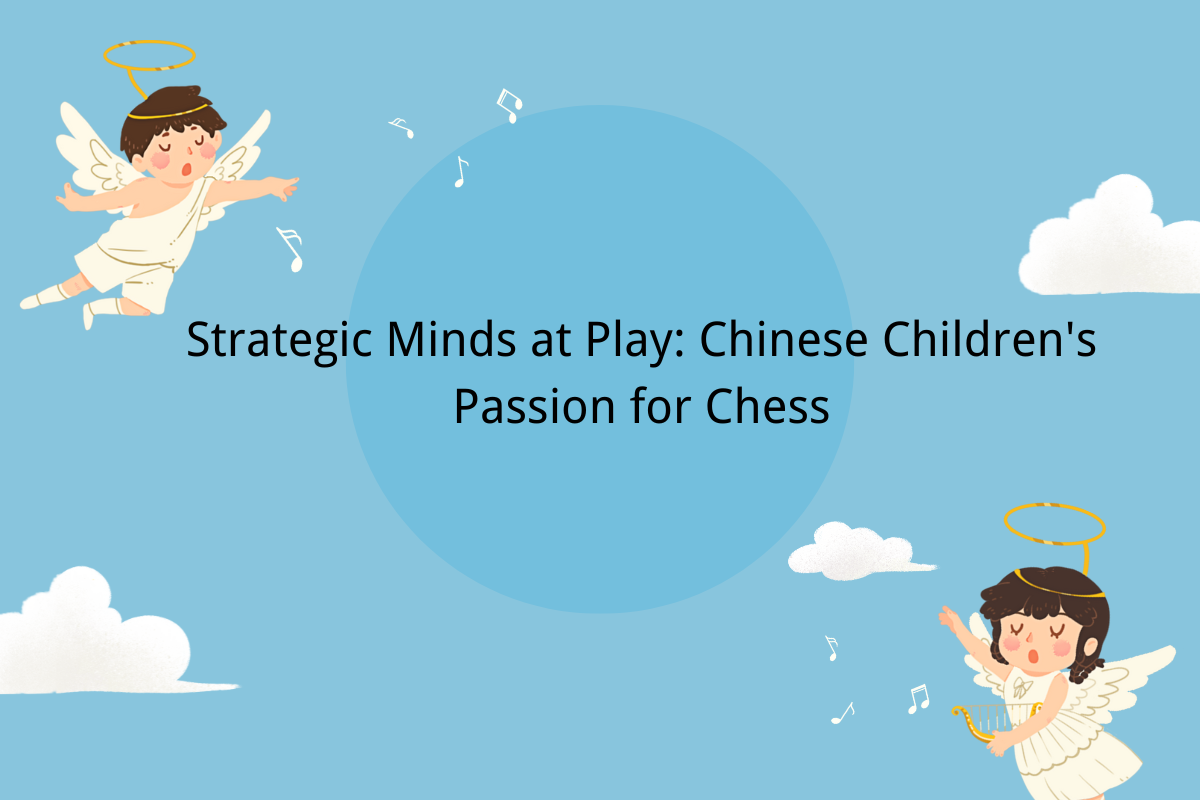Chinese Children's Game: Chinese Children's Passion for Chess-xiàng qí
Chess, or "象棋" (xiàng qí) in Chinese, is not merely a game of strategy but a dynamic tool that shapes the minds and characters of Chinese children. In this blog post, we will delve into the multifaceted benefits of chess and how it ignites passion, fosters growth, and builds community among young players in China.

Unleashing Creativity and Critical Thinking
Chess is a playground for creativity and critical thinking, where each move prompts players to envision possibilities, anticipate outcomes, and strategize accordingly. For Chinese children, chess serves as a canvas for imagination, encouraging them to explore different tactics 战术 ( zhàn shù), analyze patterns, and devise innovative solutions to complex problems.
战术 ( zhàn shù), noun, tactics
Examples:
- These tactics can greatly improve your chances of winning.
这些战术可以极大地提高你获胜的机会。
Zhèxiē zhànshù kěyǐ jídà de tígāo nǐ huòshèng de jīhuì. - Tactics are indispensable in a game.
战术是在比赛中必不可少的。
Zhànshù shì zài bǐsài zhōng bì bù kě shǎo de.

Fostering Character and Sportsmanship
Beyond the checkered battlefield, chess instills invaluable lessons in character and sportsmanship. Chinese children learn the importance of integrity, respect, and humility as they compete with peers in a spirit of fairness 公平 (gōng píng) and camaraderie. Win or lose, they shake hands with grace, acknowledging the skill and effort of their opponents, and celebrating the beauty of the game.
公平 (gōng píng), noun, fairness
Examples:
- The teacher emphasized fairness in the classroom activities.
老师强调课堂活动的公平。
Lǎoshī qiángdiào kètáng huódòng de gōngpíng. - Everyone deserves fairness in the workplace.
工作场所每个人都应该得到公平。
Gōngzuò chǎngsuǒ měi gèrén dōu yīnggāi dédào gōngpíng.
The Meaning of Chess in Chinese Culture
Firstly, chess is regarded as a symbol of wisdom and strategy. In chess, every move requires careful consideration, taking into account the possible actions of the opponent and the future development of the game. Therefore, chess is seen as a game that tests intelligence and tactical acumen. In traditional Chinese culture, chess is revered as a noble game of intellect, capable of exercising people's mental faculties and strategic thinking.
Secondly, chess is a symbol of cultural heritage. As one of China's ancient traditional cultural legacies, chess has been passed down in China for thousands of years. In China, chess is not just a game but also a cultural symbol, representing the continuation and inheritance of ancient wisdom. Through chess, people not only enjoy the pleasure of the game but also experience the profoundness of Chinese traditional culture.
Key Sentences:
- Chess requires strategic thinking and careful planning.
象棋需要战略思维和仔细规划。
Xiàngqí xūyào zhànlüè sīwéi hé zǐxì guīhuà. - I enjoy playing chess with my friends on weekends.
我喜欢周末和朋友下象棋。
Wǒ xǐhuān zhōumò hé péngyǒu xià xiàngqí. - Chess helps improve concentration and decision-making skills.
象棋有助于提高集中力和决策能力。
Xiàngqí yǒu zhùyú tígāo jízhōng lì hé juécè nénglì.
Related Articles
- Chinese Children's Game: Slingshot Shooting-dǎ dàn gōng
- Chinese Children's Game: Jumping Rubber Band-tiào pí jīn
- Chinese Children's Game:Yo-Yo-liū liū qiú
- Chinese children's game: Rolling Hoops-gǔn tiě huán
- Chinese children's game: Handkerchief Tossing Game-diū shǒu juàn
- Chinese children's game: Eagle catching chicks-lǎo yīnɡ zhuō xiǎo jī
- Chinese children's game: Hacky Sack-tī jiàn zi